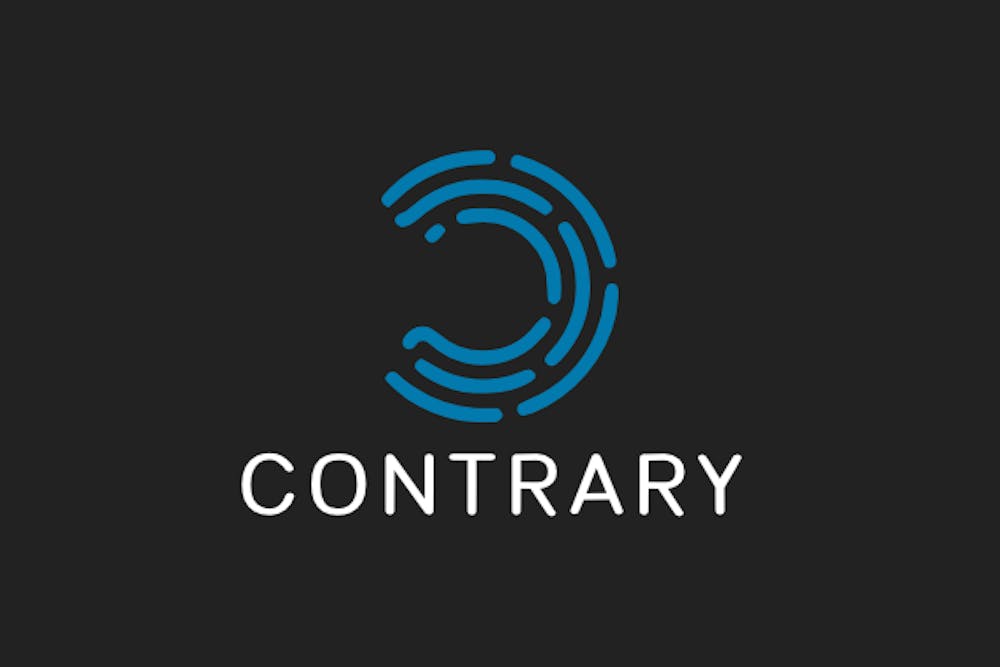Contrary Capital, a university-focused venture capital fund, officially launched on Monday at 55 colleges across the country, including Hopkins. Contrary works with 100 students to find start-ups and projects within their university communities in which they can invest.
Venture capital funds like Contrary Capital typically manage the money of private individuals by investing in emerging companies that are often high risk but have the potential of a high payoff. Will Robbins, a managing partner at Contrary Capital and student at University of Illinois, explained what sets Contrary apart from other investment initiatives.
“We give students a lot of autonomy,” he said. “One of the fundamental beliefs we have is that nobody can understand a school’s ecosystem and assess their peers as well as a student.”
Founded in 2016 by Northeastern University graduate Eric Tarczynski, Contrary aims to support university-affiliated entrepreneurs. Individuals like Martin Eberhard, co-founder of Tesla, and Dan Macklin, co-founder of SoFi, support the organization. According to Robbins, 80 percent of Contrary’s limited partners have started companies which are valued at at least $1 billion.
Student investors at Contrary search for emerging start-ups and projects to invest in. After meeting with entrepreneurs and conducting research, the students can submit proposals to the general organization.
“These students are responsible for sourcing deals. We teach them due diligence, assess investment opportunities, and eventually if we think there’s an interesting project then we’ll make an investment,” Robbins said.
He stressed the importance of entrepreneurs at universities.
“Contrary Capital was born through the realization that there’s a gap for university-focused entrepreneurs,” he said. “Many of the most impactful technology companies in the last 20 years have either been started at universities or the founders met at universities.”
Sophomore Emily Burnette and junior Pava LaPere serve as the two Contrary Capital investors at Hopkins. LaPere became involved with Contrary through Alpha Kappa Psi, a co-ed business fraternity. Burnette joined Contrary after hearing about the firm through a friend on MedHacks, a design competition in which students create solutions to health problems.
LaPere explained that she and Burnette look to invest in entrepreneurs and companies with ties to Hopkins, whether they are undergraduates, graduate students or professors. As members of TCO Labs, a student-run nonprofit that provides resources and skills to Hopkins entrepreneurs, LaPere and Burnette had access to the organization’s contacts and connections.
“It’s important when you’re looking at this stage of investment to be very ingrained in the ecosystem,” she said.
LaPere stated that finding start-ups in which to invest is not difficult, because Hopkins entrepreneurs are connected through many different student organizations.
“We’re also very hands on with the new companies that are popping out, especially from teams like MedHacks and HopHacks,” she said.
According to Burnette, over the past few years, there has been more emphasis placed on innovation and business at Hopkins.
“There haven’t been too many initiatives in the past. Now a lot of them are coming together and growing really significantly,” she said.
Burnette emphasized that opportunities for student investors are growing and that the field for venture capital is expanding.
“It is exciting to see how young people can start to get involved,” she said. “Venture capital is exciting because you can be on the forefront of all industries as they come up.”
Contrary’s Hopkins chapter joins other entrepreneurial student groups like Salant Group, Rough Draft Ventures and venture capital fund A-Level Capital. Junior Liam Wall, managing partner at A-Level Capital, stressed the importance of supporting other student ventures.
“Part of having your ears to the ground and being on top of sourcing is being part of the Hopkins community,” he said.
A-Level Capital makes investments ranging from $10,000 to $20,000 in private companies founded by current Hopkins students and graduates. Despite similarities that A-Level Capital shares with Contrary, Wall does not see any risk of overlap,
“There’s no competition at all,” he said. “It’s a pretty hot thing to start a tech start-up right now — there’s a lot of them out there.”
Wall added that Hopkins is an environment ripe for innovation and entrepreneurship.
“For decades, Hopkins has been creating really great research and really great scientists,” he said. “I think we’ve witnessed a transition or revolution where a lot of students are excited about taking risks.”
According to Robbins, it is important to understand that different universities often promote different kinds of start-up companies.
“A school like Hopkins has a lot of excellent medical tech startups or healthcare startups, whereas a school like the University of Illinois will have a lot of pure software engineering startups,” he said.
He added that universities should promote student entrepreneurs because they make financial contributions to the school.
“A lot of these schools are now realizing that people will go found a successful company in college and then 10 or 20 years later make a big donation or come back and help them in a meaningful way,” he said.





